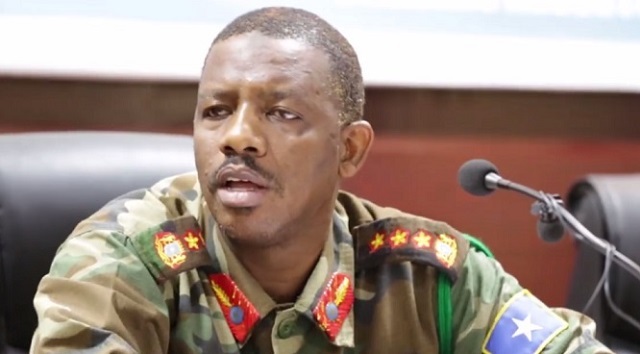Mogadishu (KAAB TV) — The Chairman of the Supreme Court of the Armed Forces, Liban Ali Yarow, has shed light on the primary reason behind the recent decline in executions ordered by the military judiciary: the lack of available land for carrying out capital punishment.
Speaking at a formal event held to welcome the new Governor of the Banadir region, Dr. Hassan Mohamed Hussein (Mungaab), Chairman Yarow explained that the military courts are currently unable to enforce death sentences due to the absence of a designated location for executions.
“There has been a pause in the implementation of capital punishment by firing squad. The land that was previously used for these purposes is now required for other national needs,” said Yarow. “Governor Mungaab, we appeal to your administration to allocate a new area where we can carry out the execution of those sentenced to death.”
Yarow emphasized that the Armed Forces Court remains fully committed to upholding the rule of law and executing its judgments but is being hindered by logistical challenges beyond its control. He also voiced his support for the new regional administration and encouraged collaboration between the judiciary and the Banadir regional government to resolve such pressing issues.
His remarks come at a time when a number of individuals convicted of serious crimes, including murder, remain incarcerated across Somalia, awaiting the enforcement of their death sentences. The delay has raised concerns about prolonged detention and the ability of the justice system to enforce final rulings.
The issue highlights broader infrastructural and legal challenges facing Somalia’s judiciary, particularly in cases involving the Armed Forces Courts, which often handle crimes related to national security and military personnel.
